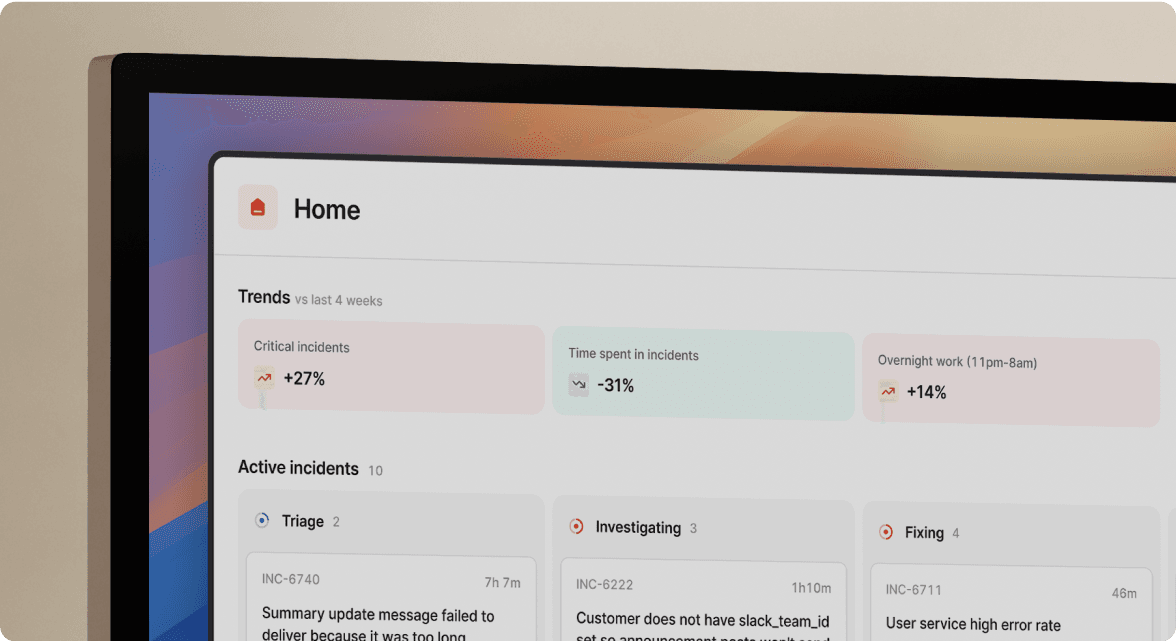Ship Insights reports to Slack
February 25, 2025

Our Insights product gives you valuable data about your incidents, helping teams understand what has happened, identify areas for improvement, and track key metrics like pager load and post-incident flow completion rates.
To enable more people to engage with this process, we’re excited to release the ability to send custom dashboards from Insights directly to a Slack channel. This is a new feature that supplements our existing functionality to send custom dashboards via email.
Having these reports in Slack means your team can quickly discuss findings and take action on recommendations, leading to better incident management practices.

To get started, you’ll need a Slack admin to reinstall incident.io in your Slack workspace. This gives us extra image upload permissions. All incident.io admins and owners will see a yellow banner on their dashboard with more info on what to do.
Next, go to Insights, open or create a custom dashboard, set your filters, and click 'Schedule' in the top-right corner.
What else we’ve shipped
New
- You can now set expressions that return multiple Slack channels when configuring sending alerts to Slack in alert routes
- You can now add an empty "nobody" user to on-call schedules. Previously, you could use “nobody” within overrides, but now you can use this as a recurring option in a schedule’s rotations
- You can now import Opsgenie and PagerDuty schedules without corresponding incident.io accounts missing users can be replaced with "nobody," useful for bypassing PagerDuty schedule limitations
- Header and footer text of status pages can now be customised
Improvements
- We now show you a message to tell you why we do not allow switching an attribute from multi-value to single value
- On-call schedules with multiple time zones now show you the time in each time zone when hovering over the calendar timeline
- We now warn you when navigating away from the auto export follow-up configuration with unsaved changes
- When Jira returns an error while you are editing Jira follow-up templates, we will now surface those errors to you
- Incident timeline now makes it more obvious when an incident was auto-closed or auto-declined
Bug fixes
- We've fixed an issue where we'd incorrectly show upcoming changes in a schedule imported from PagerDuty
- We've fixed a bug where we were syncing multiple versions of a schedule rotation into Linear's triage feature
- We've fixed a bug where PagerDuty escalation policy imports could be really slow to load
- Fixed an issue where schedules would not refresh after creating an override or cover request on mobile
- Fixed an issue where you couldn't log out of mobile without reinstalling if you'd accidentally logged into a Slack workspace that wasn't using incident.io
- We fixed a bug where some PagerDuty escalation messages were not getting updated when a user acknowledged externally
- SCIM setup is now only accessible by Enterprise customers via the teams wizard
So good, you’ll break things on purpose
Ready for modern incident management? Book a call with one of our experts today.

We’d love to talk to you about
- All-in-one incident management
- Our unmatched speed of deployment
- Why we’re loved by users and easily adopted
- How we work for the whole organization



